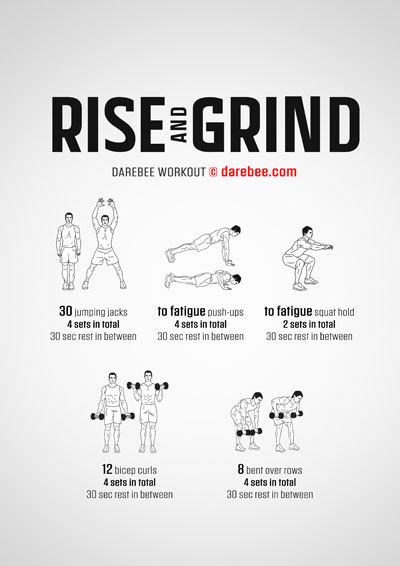
Personal trainers' salaries will vary depending on where they are trained, but there may be some general factors that influence the amount paid. This article will discuss the average hourly salary and the annual salary of a Chicago personal coach. This article will also explain what to expect in a career and prepare you for interviews. You may be surprised by the differences between your current salary and the average rate in your city.
Average hourly wage for a Chicago personal training professional
The average hourly wage for a Chicago-area personal trainer is $24. This is an average hourly rate for a personal trainer in the Chicago metro area of $24. Payscales for personal trainers are dependent on experience, employer, and geographic location. The following salary information is based only on the data provided by personal trainers in the region. For additional information, check out our salary guide for Chicago trainers. We also provide salary data for all major cities.

In determining the hourly rate for a Chicago personal trainer, it is important that you consider how long it takes. Personal trainers' non-client hours include travel time, marketing, communications, and administrative time. This time is not covered by your hourly rates. You may struggle to find time for your first few hours. However, once you gain experience, you'll likely be able to charge between $30 and $50 per hour.
Pay for a Personal Trainer is affected by a variety of factors
How much do personal trainers make? Some earn $17-$25 an hour training paid clients while others make only $9-10 an hour. Different factors affect the pay of a Chicago personal trainer. As a new business, you may not have a steady stream of clients and a positive cash flow right away. Therefore, you should start with what you can do. Your capacity to train clients may be 20 hours a week. After a year, you can look at the revenue you've generated.
The demand for personal trainers in major cities like Chicago, LA, and New York is high. However, personal trainers don't get fixed salaries. They can vary greatly depending on where they work. Personal trainers can work for themselves or their business. Their take-home pay is dependent on their availability. Fortunately, there are ways to get compensation for working part time and even full-time.
Average salary for a Chicago personal coach
The average salary for personal trainers in Chicago is $47K. There are opportunities to make more than $91K each year. A personal trainer's job often involves creating exercise programs for clients and providing advice on nutrition and diet. Personal training can also include educating clients about exercise and its benefits. Chicago salaries can range anywhere from $46,000 up to $104,000. But salaries can vary depending on where you live.

A personal trainer in Chicago can earn a very different salary depending on which organization he or she works for. Private trainers can make as little $15 or as much $50 an hr depending on the industry. The trainer would earn $30-$50 an hour if they work 40 hours per week. Some trainers charge $300 per month for unlimited training sessions. These packages are usually more affordable than traditional gym memberships.
FAQ
How does caffeine affect my sleeping?
Caffeine can affect how quickly you fall asleep, and how well you sleep. Caffeine causes drowsiness, which makes falling asleep easier. However, caffeine can keep you awake longer and make it more difficult to fall asleep. If you drink coffee or energy drinks right before bedtime, try drinking them later in the evening instead.
Which Is more important? Exercise, diet, sleep?
Your goals will dictate the answer. It is important to lose weight. To build muscle mass, exercise is crucial. The last factor is sleep, which only impacts how well you perform during your day.
Should I drink alcohol when I work out?
It is important to limit your alcohol intake while you are working out. However, moderate consumption of alcohol (one drink per day) may help improve endurance during workouts. It may reduce fatigue and muscle soreness from intense exercise.
Can I exercise after eating?
It depends on the exercise you do. Avoid strenuous exercise after meals as it can cause stomach cramps. Light aerobic activities, such as walking or biking, are better.
What are Cardio Exercises and How Do They Work?
Cardiovascular exercises are those that require your heart and lungs to work harder than normal. These include swimming, running, bicycling or rowing. These activities are great for burning fat and increasing metabolism. They can also help you stay fit by strengthening your heart and lungs.
Do I need to warm up before exercising?
Warming up before you start an activity will reduce muscle soreness. There are many methods you can use to warm up, including running, jumping rope and stretching. You should start slow and gradually increase your speed and intensity.
What is exercise good for?
Exercise can help you lose weight, increase muscle mass, improve energy levels, reduce stress and improve your sleep quality. The benefits of exercise include improved moods, better self-esteem, increased productivity, and reduced risk of heart disease.
Statistics
- Adolescent girls were less active than adolescent boys, with 85% vs. 78% not meeting WHO recommendations of at least 60 minutes of moderate to vigorous intensity physical activity per day. (who.int)
- One study showed that adults who watch more than 4 hours of television daily had an 80% higher risk of death from cardiovascular disease. (heart.org)
- An estimated 110,000 deaths per year could be prevented (cdc.gov)
- According to the Centers for Disease Control and Prevention, chronic diseases cause 7 out of 10 deaths in the U.S., and treating chronic diseases accounts for 86% of U.S. healthcare costs. (mana.md)
External Links
How To
How to Stay Fit at Age 40
This article helps those over 40 to keep their body strong and healthy. It provides some basic advice about how to eat right and exercise well as how to take care of your mental wellbeing. This article gives tips on how to live longer and healthier.
-
Eat Right - The first thing you should do when trying to stay fit is to ensure you're eating the right foods. You should steer clear of processed food products, and eat whole grains and fruits, vegetables, lean proteins, fish, eggs, nuts, seeds, beans and legumes. Don't be afraid to change your diet if the food you are eating is not what you prefer. You won't lose weight if you don't eat as much. Start incorporating small amounts of new foods into your daily diet. If you normally only eat chicken breasts, you might consider adding turkey to your weekly meals. Rice is another option if you enjoy pasta. Make these foods part of your daily routine.
-
Exercise - You should exercise at least three days per week. Include cardio activities like running, swimming, biking and dancing. Rest is also important. Sleeping for 8 hours per night is recommended. You should also ensure you get enough water throughout the day. Try to drink 2 liters (0.5 gallons) of water every day.
-
Sleep Well - Getting adequate sleep is essential to staying fit. According to the National Sleep Foundation, adults require 7-8 hours of sleep daily to maintain optimal physical and emotional health. Most people only get 6 hours sleep per night. You might consider changing your sleeping patterns if you feel tired all day. You can catch more sleep by changing your sleeping schedule so that you go to bed earlier or wake up later. You can also turn off your smartphone before you go to sleep so you can relax and wind down. Avoid caffeine after noon, as it can cause sleeplessness.
-
Take care of your mental health - It is essential to take good care of your mind in order to keep your body healthy. Stressful situations can lead to poor eating habits and unhealthy lifestyle choices. Stress management techniques such meditation, yoga and breathing exercises are important. Spend one hour doing something you enjoy. This could be taking a stroll outside, reading a book or listening to music.
The above four points will ensure that you live longer and healthier. These simple steps will allow you to reach your fitness goals.